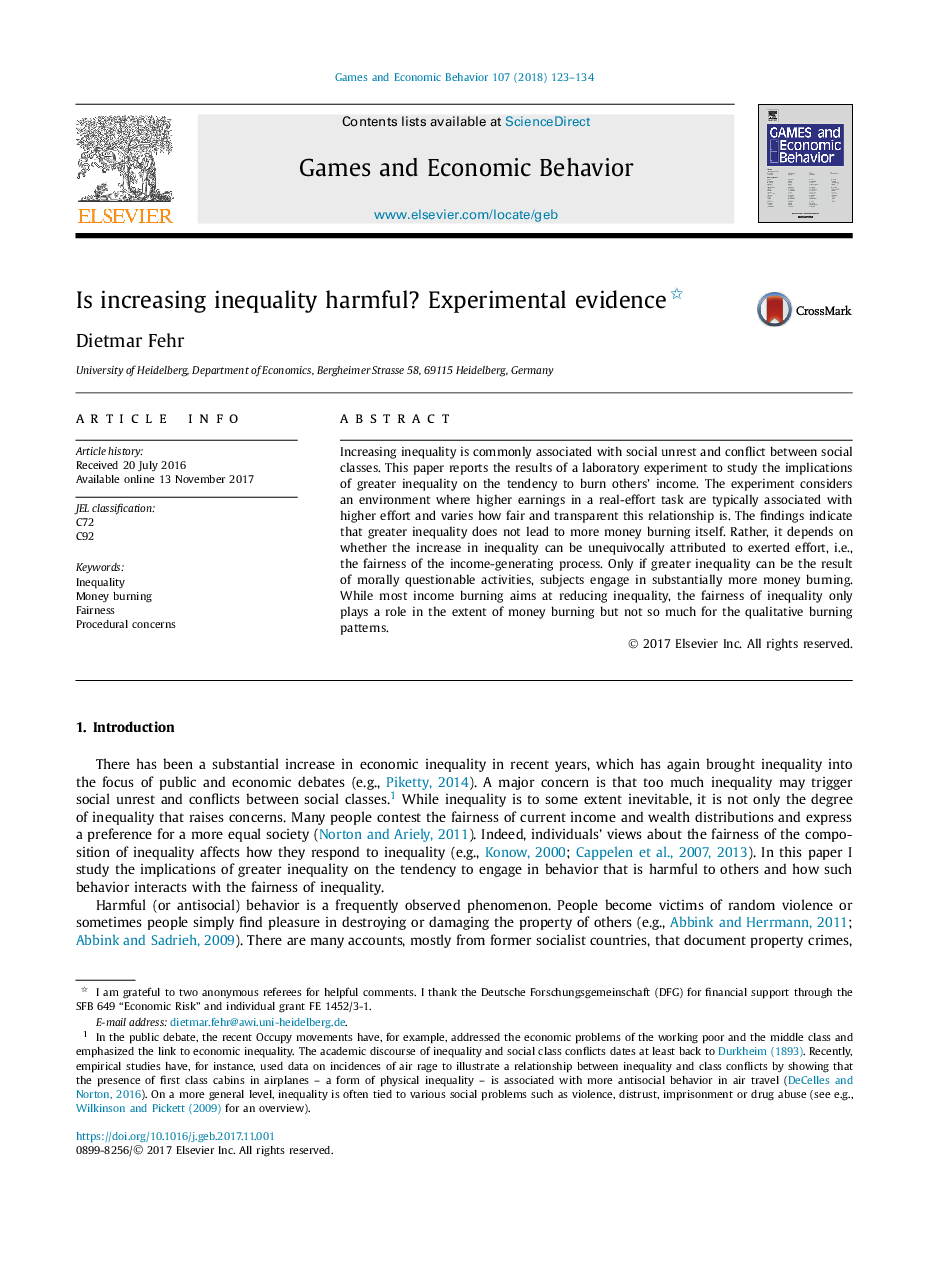| Article ID | Journal | Published Year | Pages | File Type |
|---|---|---|---|---|
| 7352962 | Games and Economic Behavior | 2018 | 12 Pages |
Abstract
Increasing inequality is commonly associated with social unrest and conflict between social classes. This paper reports the results of a laboratory experiment to study the implications of greater inequality on the tendency to burn others' income. The experiment considers an environment where higher earnings in a real-effort task are typically associated with higher effort and varies how fair and transparent this relationship is. The findings indicate that greater inequality does not lead to more money burning itself. Rather, it depends on whether the increase in inequality can be unequivocally attributed to exerted effort, i.e., the fairness of the income-generating process. Only if greater inequality can be the result of morally questionable activities, subjects engage in substantially more money burning. While most income burning aims at reducing inequality, the fairness of inequality only plays a role in the extent of money burning but not so much for the qualitative burning patterns.
Related Topics
Social Sciences and Humanities
Economics, Econometrics and Finance
Economics and Econometrics
Authors
Dietmar Fehr,
